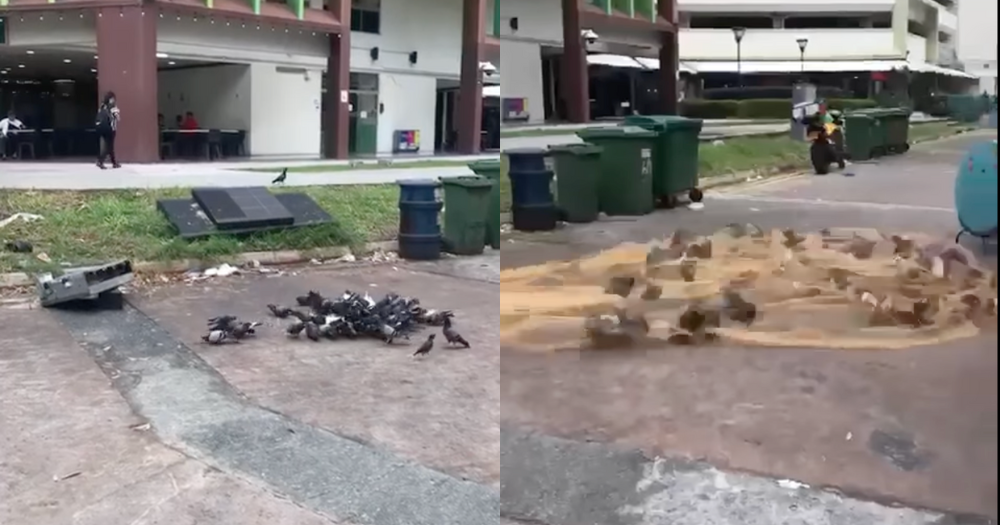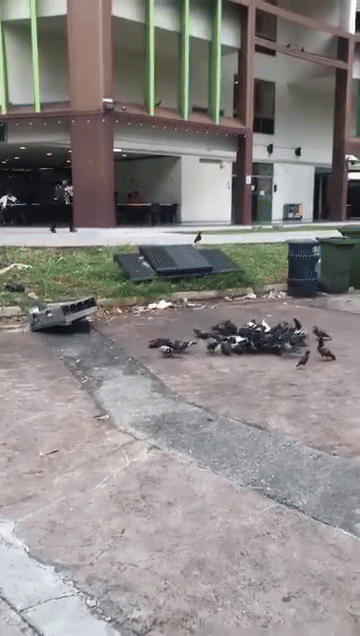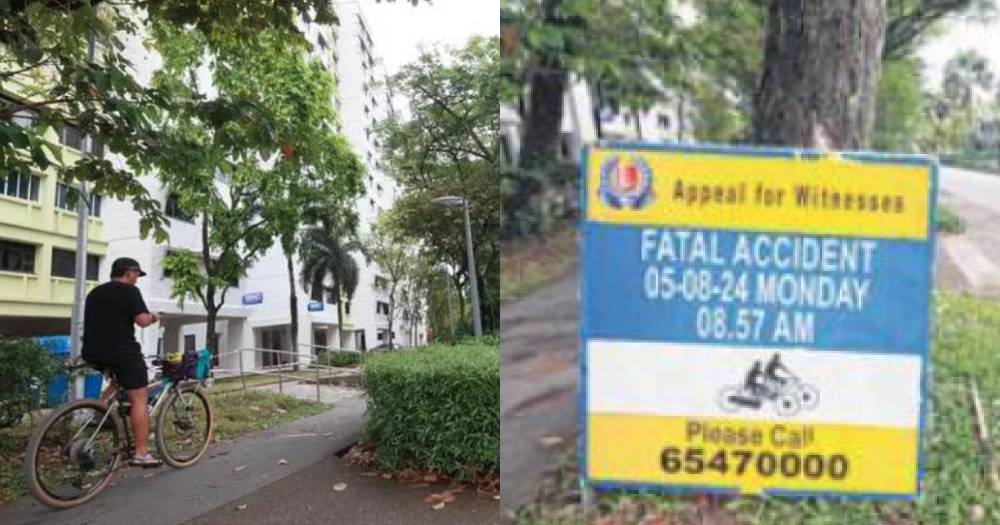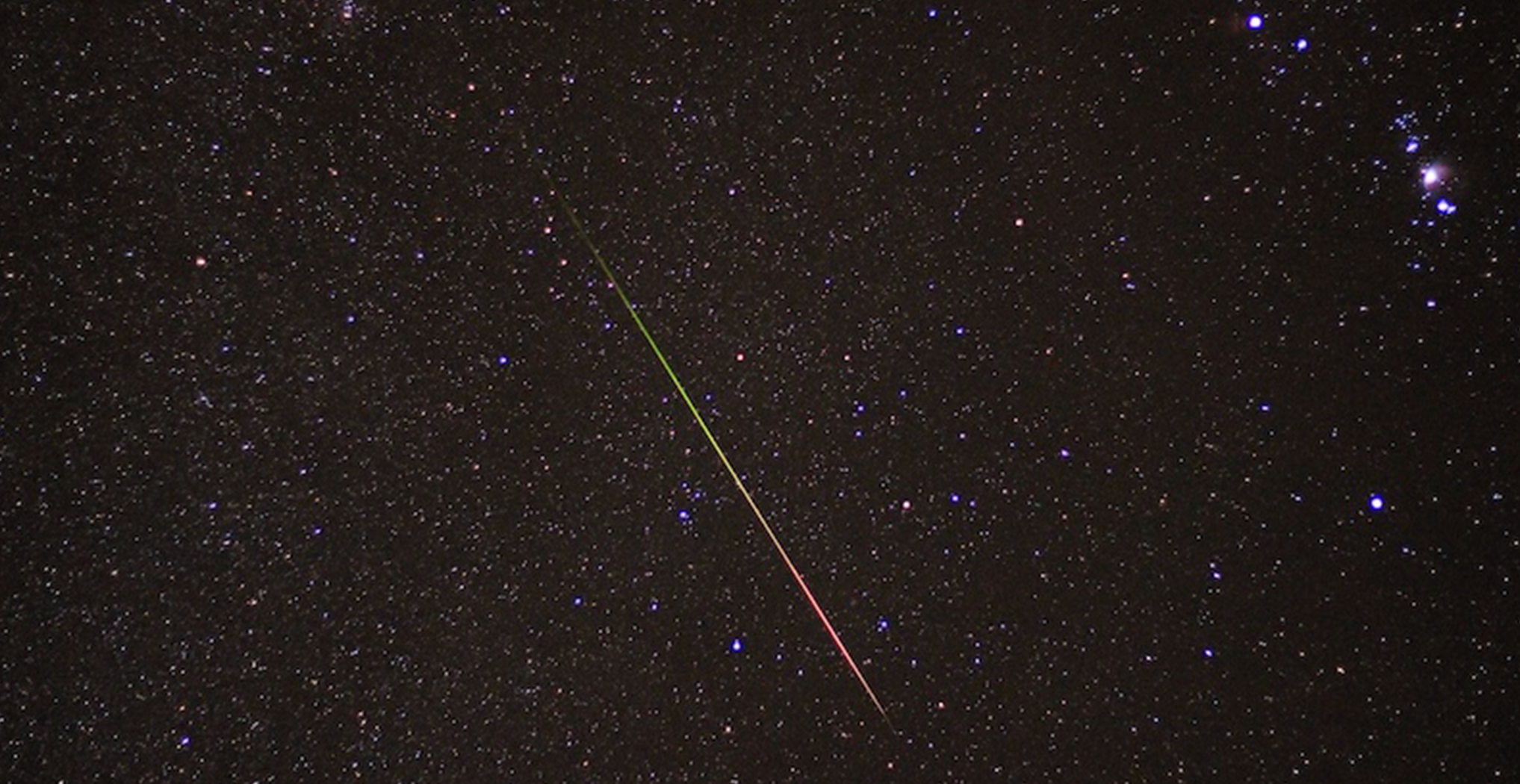Whole flock of pigeons trapped with net launcher at Joo Chiat after complaints
NParks said they received feedback on the "dis-amenities" caused by pigeons in the Joo Chiat estate over the past year.

A flock of pigeons were seen being captured while they were feeding at the Joo Chiat complex.
Footage of the incident, which showed the pigeons gathering in front of a machine to feed, was posted to social media on Oct. 16.
The machine then shoots out a net, trapping them.
 Gif via Patrick Tan/Facebook
Gif via Patrick Tan/Facebook
Two men were then seen holding down the net as the pigeons struggled.
NParks: Complaints have been made about the pigeons
In response to Mothership's queries, the Group Director of Wildlife Management at the National Parks Board (NParks), How Choon Beng, said the organisation had received feedback on the "dis-amenities" caused by pigeons in the Joo Chiat estate over the past year.
Hence, as part of population management measures, NParks is removing some pigeons from hotspots with observably large clusters of pigeons.
How also highlighted that the pigeons are rock pigeons, which are not native to Singapore and can cause soiling and hygiene issues with their flocking and roosting behaviour.
He said that town councils and agencies should, therefore, take a "science-and community-based approach" to managing the pigeon population to safeguard public health and minimise nuisances.
This comprises measures such as food source reduction, habitat modification, and population control.
In addition, NParks conducts studies to understand the ecology of the birds, such as their roosting patterns and movements.
Public has to play their part by not feeding pigeons
How also pointed out that the public has an important role to play in helping to reduce the pigeon population by not feeding them and ensuring that food scraps are properly disposed of.
The director added that managing the pigeon population requires the efforts of multiple agencies, town councils and the community.
This includes reducing human-generated food sources, such as tackling high-rise littering and managing waste at food establishments and bin centres.
NParks has also reached out to the members of the public through various ways to educate them, How said.
This includes outreach talks in schools and an initiative called "Our Avian Neighbours" to raise awareness among the elderly about the negative impacts of bird feeding.
NParks also monitors feedback on illegal bird feeding and undertakes active enforcement, which includes physical surveillance and the deployment of CCTV cameras at identified feeding hotspots.
Under the Wildlife Act, offenders can be fined up to S$5,000 for their first offence of feeding any wild animal, including pigeons, and up to S$10,000 for subsequent offences.
Top images via Patrick Tan/Facebook
MORE STORIES




















